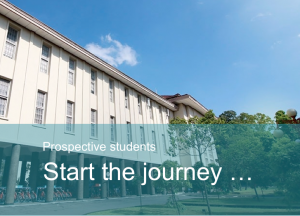Intelligent System Research Laboratory is oriented to the development of computer reasoning methodology, especially the development of aspects of artificial intelligence which is the state of the art system in the 21st century. It also creates and utilizes new and effective reasoning techniques, modeling and simulation based on biological systems, as well as human brain systems. This field of research includes the development of intelligent systems, knowledge-based and agent-based systems, reasoning systems, artificial neural network systems, DNA computing, membrane computing and evolutionary computing, agent systems, robotics systems, decision support systems, besides knowledge management.
This laboratory also develops methods to produce quality software. This field of research covers all stages of software development, ranging from user requirements, design, implementation and maintenance. Other areas of focus for this laboratory are the development of information infrastructure, data management systems, and data mining. Data that the focus of attention of this laboratory can be in various forms, such as documents, imagery, sensors, web, biological data. For more specific, the laboratory accommodates the studies in the following topics:
- Artificial Intelligence: the ability of machines to demonstrate intelligent behavior, emulate and simulate methods of acquisition and application of human knowledge and reasoning. It is a research topic that explores ways to organize, represent, store and utilize knowledge appropriately and efficiently to solve problems, design, and build intelligent systems. Some topics in artificial intelligence are: a) agent systems: building systems that act as agents (eg driver agent, project monitoring agents, etc.); B) casebased reasoning systems; C) expert system/knowledge based systems; D) natural language processing; E) pattern recognition; F) finding solutions for searching; G) sensory system (vision system); H) Games
- Bioinformatics: utilization of computer science, mathematics and information theory to model and analyze biological systems especially ones involving genetic material. Computational intelligence: a study on adaptive mechanisms that build intelligent behavior in complex and changing environments. Creating algorithm models to solve complex problems, including artificial neural network paradigm, evolutionary computation, swarm intelligence, fuzzy system, Bayesian reasoning.
- Decision Support System/Group Decision Support System: modeling on decision making by utilizing computational intelligence, mathematical model and optimization. Knowledge management: explicit and systematic management of knowledge, and processes related to the creation, extraction, transformation, storing, incorporation, utilization and development of knowledge in achieving a goal.
- Robotics: robotics system engineering by applying the robotic’s learning model so as to achieve intelligence level as human beings.
- Software Engineering comprises a) Model checking: performs modeling to do validation and verification testing for softwares; b) Software process: stages of software development and maintenance; (c) Software testing: performs testing for software validation and verification; d) Software project management: manages software development; (e) Semantic web and onthologies: performs searching for data or documents based on their semantics
The Member of Intelligent System Research Laboratory:
<
| Name of Staff | Interest and Expertise |
| Afiahayati, S.Kom.,M.Cs, Ph.D. | Bioinformatics, Machine Learning |
| Aina Musdholifah, S.Kom., M.Kom., Ph.D. | Genetic Algorithm, Fuzzy Logic |
| Dr. Sri Mulyana, M.Kom. | Artificial Intelligence, Decision Support Systems, Fuzzy Logic |
| Ilona Usuman,S.Si.,M.Kom., Ph.D. | Robotics, Smart Home |
| Retantyo Wardoyo, Drs., M.Sc.,Ph.D. | Computation Theory, Sains Manajemen |
| Prof. Sri Hartati, Dra., M.Sc., Ph.D. | Artificial and Computational Intelligence, Decision Support System |
| Faizah, S.Kom, M.I.Kom. | Expert Systems |
| Yunita Sari, S.Kom., M.Sc., Ph.D | Natural Language Processing. Pattern Recognition |

